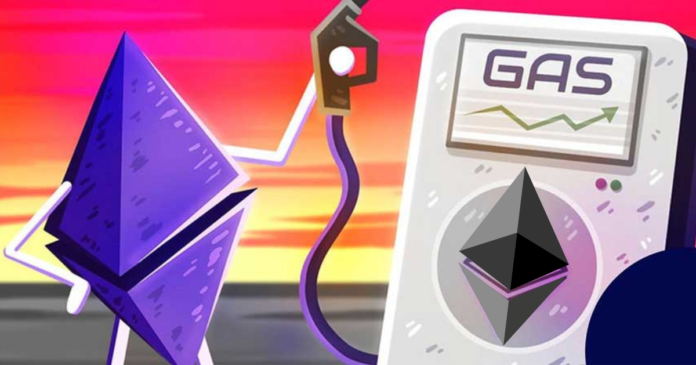What are Ethereum gas fees? Paying hundreds of dollars in transaction fees on the Ethereum network can be annoying. And for some, it’s not only a mystery why we pay such high fees. In any case, why do we pay fees? The smallest unit of gas is called a guy and it’s used to assign value to a task like transferring tokens, checking balances, or calling a smart contract function.
Ethereum is a blockchain network that processes transactions and puts smart contracts into action, as you may already be aware. These transactions are confirmed by so-called nodes which are operated by a group of users called miners. To support the Ethereum network by verifying transactions.
The excessive computing power required by miners results in high electricity costs. The fees charged by miners, known as gas, are valued in the native ether cryptocurrency because they aren’t motivated to work without a reward.
The smallest unit of gas is called a Gwei and it’s used to assign value to a task like transferring tokens, checking balances, or calling a smart contract function. Since Ethereum can only handle a certain number of tasks at once, gas is used as a restriction to prevent the network from becoming overloaded. Naturally, more computationally intensive tasks demand more gas. simple tasks call for less effort.
The priority of a transaction is raised if a user pays more gas in order to complete it more quickly.
It’s also possible to set a gas limit and decide the maximum amount of gas that you’re willing to spend for a particular transaction. The transaction will be disregarded by miners if the limit is too low.
The Ethereum network relies heavily on Ethereum gas fees to fund miners, control transactions, and establish priorities.
The blockchain network would cease to exist if we decided not to pay gas fees, and miners would stop processing transactions due to network congestion.
Related: Permissioned vs Permissionless Blockchain Networks
Why are Ethereum gas fees sometimes expensive?
Even though Ethereum has a carefully considered design for handling and prioritizing transactions, this does not imply that the network operates faultlessly in actual use. The supply and demand for processing power affect gas prices. Network congestion occurs when there is a spike in demand for Ethereum but not enough miners to handle the additional transactions.
Gas prices soar due to network congestion. The average transaction fee rises, as a result, forcing users to pay more than usual. This is because some users are willing to pay more for gas in order to have their transactions processed more quickly. Ethereum Gas fees return to normal only when demand drops since it’s unlikely to see an event in which the number of miners suddenly increases to meet the new demand. Fees can maintain a high price for weeks if not months and it’s common for Ethereum to experience network congestion during bull runs.
Related: Centralized vs Decentralized Exchanges | Best Exchange?
Ethereum 2.0 can solve this which is going to happen this month. What do you think will the new Ethereum 2.0 upgrade help with improving scalability and reducing fees, Let us know in the comments below.

